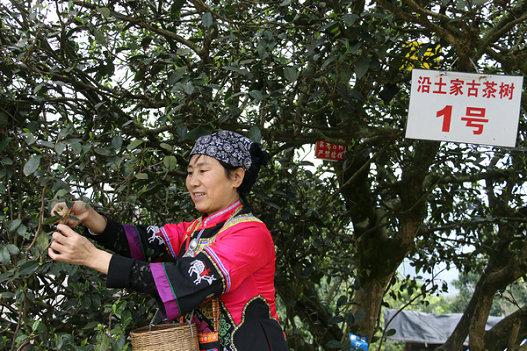 |
|
Xiao Shimei runs a successful tea business from Yanhe, a county in Guizhou. [Photo by Yang Jun/China Daily] |
Her father's struggle with brain cancer led Xiao Shimei, 49, to buy a book on tea more than a decade ago. But she soon found her curiosity about the perceived anti-carcinogenic properties of tea translating into something else: What if she started a business? After all, Yanhe, her county in eastern Guizhou, had a large number of trees.
In 2007, she launched the Yanhe Qian Nian Gu Cha Ltd, by selling tea from trees she says are even 800 years old. Her business seemed to have quickly picked up in a province, where in her words, many people were drinking ugly looking tea. Other than the mainland, her company's tea is now found in Hong Kong and Macao.
With two flagship stores in Yanhe that have 26 full-time employees, Xiao manages sales through franchises in Southwest China. She has invested nearly 1 million yuan in her brand, and is "almost there" in terms of profit, she says. The best yields fetch her 10,000 yuan per 500 grams and the lowest are priced at 60 yuan.
At an auction last year, she sold 32 kilograms of tea at an average of 5,500 yuan a kilogram. Her black and green teas come from plantations across 2,700 hectares in Yanhe, where she engages hundreds of pickers during harvest time from late spring to early summer, she says. The local farmers grow the trees.
Sitting in an office of one of her franchises in Guiyang, Xiao says, she's seeking to create more awareness of her brand by integrating online and offline channels.
The mother of two grown girls has missed out a lot on their childhood because she was building her business, she says. "I was hard pressed for time."
And while she denies suggestions of accomplishment, Xiao says: "I'll never give up the spirit of enterprise."
In her case that's not difficult to imagine. China is a nation of tea drinkers.
|
|
|
|
|
|
|
|
